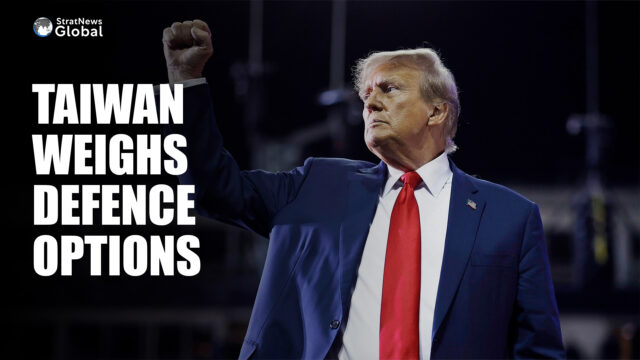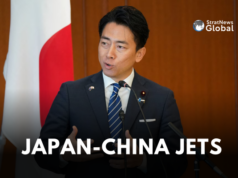Taiwan may demonstrate it takes Donald Trump’s “protection” money demand seriously with large and early new arms deals, showing it is not looking for a free ride and is determined to show Washington its resolve to spend to defend itself.
Trump, who won a second term as president this week, unnerved democratically governed Taiwan, which is claimed by China, by saying that Taiwan should pay the U.S. for its defence and that it had taken semiconductor business away from America.
“Watch for Taiwan on the defence side to try and start engaging them on a big arms package – to do something significant, very large,” Rupert Hammond-Chambers, president of the U.S.-Taiwan Business Council which helps broker defence exchanges between Washington and Taipei, told Reuters, adding it could come in the first quarter of next year.
“But think of it as a down payment, an attention getter,” he said. “They’ll stack up several big platforms and big buys of munitions.”
The U.S. is already Taiwan’s most important arms supplier, although Taiwan has complained of an order backlog worth some $20 billion. A new order, almost $2 billion of missile systems, was announced last month.
Taiwan, whose government rejects Beijing’s sovereignty claims, has faced repeated military pressure from China, including a new round of war games last month.
Taiwan’s foreign ministry, in a written report to lawmakers on Thursday, said China might try and test the U.S. during the presidential transition with more drills, hacking attacks or
other forms of psychological warfare.
One former U.S. official said he assessed it was “highly likely” that Taiwan would move quickly to attempt to broker a major arms deal with the U.S. to get the Trump administration onside and counter any lingering inclination he has that Taiwan
fleeced the U.S. on semiconductors.
“They will want to solidify their fealty quickly to lock in Trump’s interest,” the person said of Taiwan, speaking on condition of anonymity to be able to speak freely.
Taiwan’s defence pact with Washington ended in 1979 along with official diplomatic relations, so it does not directly pay for U.S. forces to be based on its soil, unlike Japan and South Korea.
On Thursday, Taiwan Foreign Minister Lin Chia-lung avoided answering questions from reporters on what protection money for the United States might look like, but told lawmakers defence spending, now around 2.5% of GDP, would increase.
“The trend is for it to keep rising,” he said.
Taiwan’s defence ministry referred Reuters to comments on Wednesday by Deputy Defence Minister Po Horng-huei in parliament that Defence Minister Wellington Koo had made it very clear Taiwan’s determination to defend itself will never change.
“It is our responsibility to maintain stability in the Taiwan Strait,” Po said.
With Reuters inputs
Thirty eight years in journalism, widely travelled, history buff with a preference for Old Monk Rum. Current interest/focus spans China, Technology and Trade. Recent reads: Steven Colls Directorate S and Alexander Frater's Chasing the Monsoon. Netflix/Prime video junkie. Loves animal videos on Facebook. Reluctant tweeter.





